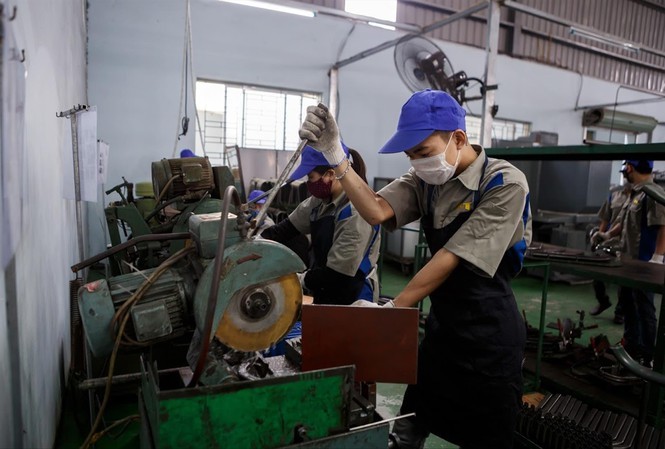“The support is too small compared with businesses’ losses and with support in other countries from their governments,” said Nguyen Dinh Cung, a respected economist.

“The remissions of taxes and fees are too small. The support solutions are fragmented. Some requirements are unreasonable,” he added.
Only one decree and two circulars related to solutions to help businesses overcome difficulties have been issued to date.
Cung believes that there should be other policies to support businesses, like lowering the land leasing fee for enterprises, institutions, business households and individuals in 2020 by 15 percent.
| According to the General Statistics Office (GSO), because of Covid-19, the number of new businesses in the first five months of the year decreased by 10 percent to 48,300, while total registered capital decreased by 16 percent to VND557 trillion. |
He also thinks it is necessary to exempt aviation enterprises with outstanding loans until December 31, 2019 from the guarantee service fee in 2020; reduce the takeoff/landing fee, and the air control service fee by 50 percent, applied to domestic flights from March to the end of September 2020; apply the minimum prize of zero dong for aviation specific services for which the State sets price frames; and reduce the lending interest rate by 2 percent for SMEs to borrow money from the SME Development Fund.
According to the General Statistics Office (GSO), because of Covid-19, the number of new businesses in the first five months of the year decreased by 10 percent to 48,300, while total registered capital decreased by 16 percent to VND557 trillion. The average capital for each newly set up business decreased by 6.9 percent to VND11 billion.
Except for agriculture, forestry and seafood, only electricity, water and gas production and distribution had an increase in newly set up businesses, with 928 registered businesses, a rise of 95 percent.
Meanwhile, the figures decreased in all the remaining business fields including wholesale and retail, car and motorbike repair (down by 7.3 percent), construction (down 9.8 percent), manufacturing and processing (down 9.1 percent), job service, tourism, machine leasing and other supporting services (down 19 percent).
Pham The Anh from VEPR said support needs to be tailored to appropriate companies, and that rampant support is a big waste to the economy. The massive reduction in electricity bills and land rents are an example.
Meanwhile, the corporate income tax reduction is insignificant to enterprises that have had to suspend operation and don’t have revenue.
Pham Nguyen Hanh, deputy CEO of Vinatex, the nation’s largest textile and garment producer, said the VND62 trillion relief package has had little significance.
Only the enterprises which have 50 percent of workers losing jobs can access the package. If enterprises have to lay off 50 percent of workers, they will go bankrupt and will not need the support.
Mai Lan

Finance Ministry plans to support enterprises with related party transactions
The interest expense deduction limit may be raised from the current 20% to 30% to support businesses, according to a draft decree on tax management for enterprises with related party transactions the Ministry of Finance made public for comments.

Supporting industries at a crossroads
The foreign capital inflow into Vietnam will help local enterprises expand their production, but the opportunity can only be grabbed by capable enterprises.
 The policies on supporting businesses have been designed well, but the support is not enough to help businesses recover losses, economists say." itemprop="description" />
The policies on supporting businesses have been designed well, but the support is not enough to help businesses recover losses, economists say." itemprop="description" />